Are you curious about how your dream vacation might be harming the beautiful coastal areas you love? Tourism, while beneficial to economies, can significantly impact these delicate ecosystems. SIXT.VN is committed to helping you explore Vietnam responsibly, offering sustainable travel options that minimize environmental damage. Discover how to enjoy the beauty of coastal destinations while protecting them for future generations with responsible travel and eco-conscious choices.
1. How Does Mass Tourism Harm Ocean Ecosystems?
Mass tourism, characterized by a large influx of visitors to popular vacation spots, puts significant strain on ocean ecosystems. The United Nations World Tourism Organization (UNWTO) reported 1.4 billion international tourist arrivals in 2018, a massive increase from just 25 million in 1950. This surge, fueled by low-cost travel and convenient online booking, leads to several detrimental effects:
- Coral reef destruction
- Marine pollution
- Overfishing
- Coastal developments
- Boat traffic
- Noise pollution
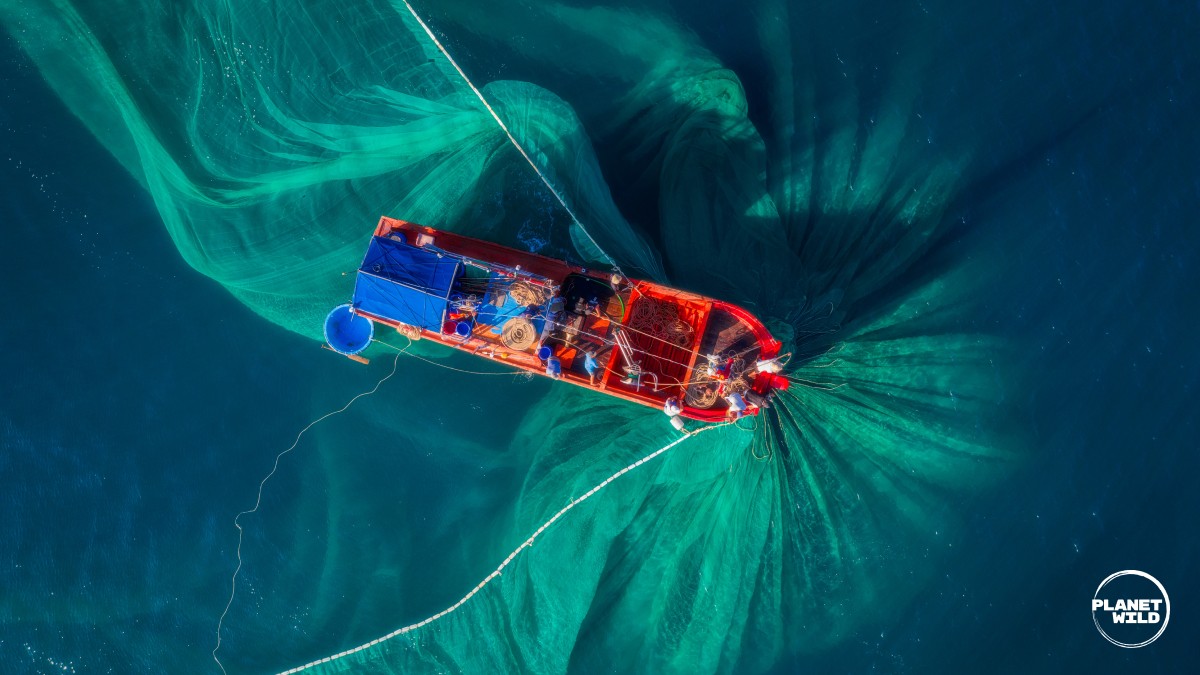 Fishing nets surrounding a fishing boat
Fishing nets surrounding a fishing boat
Abandoned fishing gear poses a significant threat to marine life.
2. What Is the Impact of Tourism on Coral Reefs?
Tourism significantly impacts coral reefs through direct physical damage and chemical pollution. Over-diving and snorkeling can break or damage the fragile coral structures. Chemicals in sunscreen also contribute to coral bleaching. According to the Global Coral Reef Monitoring Network, approximately 50% of the world’s coral reefs have already died due to human disturbances. This is alarming, as coral reefs support a wide variety of marine species and maintain coastal ecosystems.
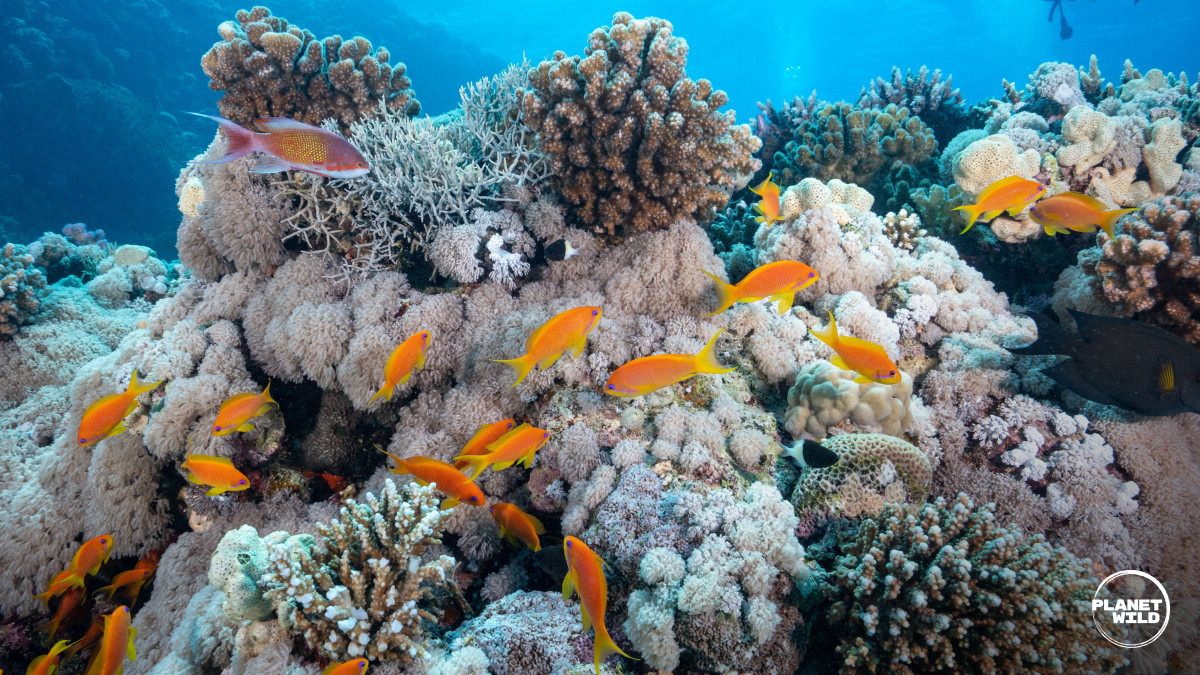 Coral reef and fish
Coral reef and fish
Coral reefs host countless species, highlighting the need to protect these vital ecosystems.
2.1. How Has Tourism Affected the Great Barrier Reef?
Australia’s Great Barrier Reef, a UNESCO World Heritage site, has suffered significant degradation due to tourism and other factors. Almost half of this coral system has vanished in the last three decades. The reef supports thousands of jobs and generates around $6 billion annually. Increased pollution, rising water temperatures, coral bleaching, and starfish outbreaks have contributed to the reef’s decline. Coastal developments, like hotels and restaurants, pose a continued threat to this fragile ecosystem. According to the Australian Institute of Marine Science (AIMS), proactive measures and sustainable tourism are essential to preserve the Great Barrier Reef for future generations.
3. How Does Marine Pollution Increase Due to Tourism?
Marine pollution is significantly exacerbated by tourism. Tourist-related activities often result in the improper disposal of plastic waste, litter, and sewage into the ocean. Careless tourists contribute to plastic accumulation around popular vacation spots. Cruise ships often discharge large quantities of untreated waste into the ocean, impacting marine life. The International Maritime Organization (IMO) is working to regulate waste disposal from ships, but individual responsibility is equally important.
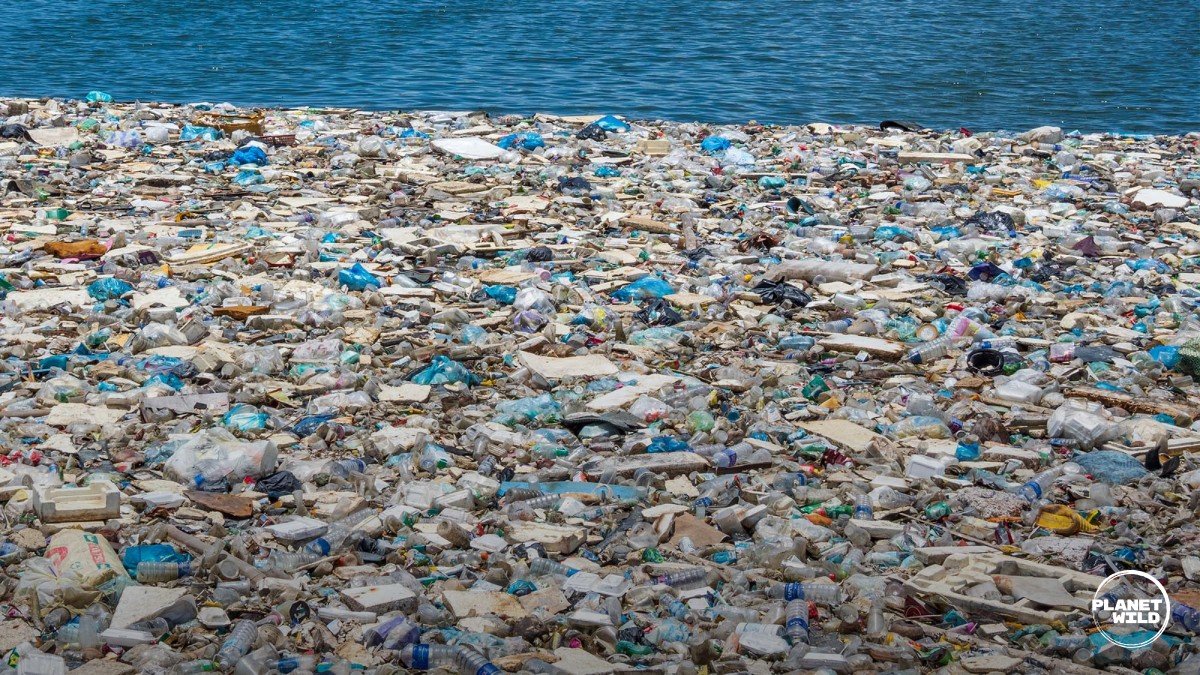 Plastic in the ocean
Plastic in the ocean
Tons of plastic waste are dumped into our oceans yearly, emphasizing the urgency of the issue.
3.1. What Is the Plastic Pollution Situation in Zanzibar and Tanzania?
Tourism in Zanzibar and Tanzania generates a significant amount of plastic waste. Marine litter in the Mediterranean has been found to increase by up to 40% during the high tourist season. Much of the plastic used in the tourism industry is cheap and non-recyclable, such as plastic cutlery, water bottles, straws, and smoking packaging. According to a recent study by the University of Wollongong, tourism generates about two-thirds of all marine plastic pollution in Dar es Salaam and Zanzibar Island.
4. Why Does Tourism Lead to Overfishing?
The demand for fresh seafood by tourists can lead to overfishing, depleting fish populations and disrupting marine ecosystems. This also affects local communities whose livelihoods depend on the sea, making it difficult for them to compete against larger fishing industries. All of this puts immense pressure on fish populations, leading to imbalance.
4.1. What Is the Impact of Tourism on the Southern Bluefin Tuna?
The Southern Bluefin Tuna has been intensely overfished since the 1950s. The International Union for Conservation of Nature (IUCN) has classified the southern bluefin tuna as critically endangered, with the estimated spawning stock biomass declining by approximately 85 percent between 1973 and 2009. The species’ popularity in Japanese cuisine drives high demand, encouraging illegal fishing and hindering recovery efforts. Sustainable seafood choices are vital to protect these species.
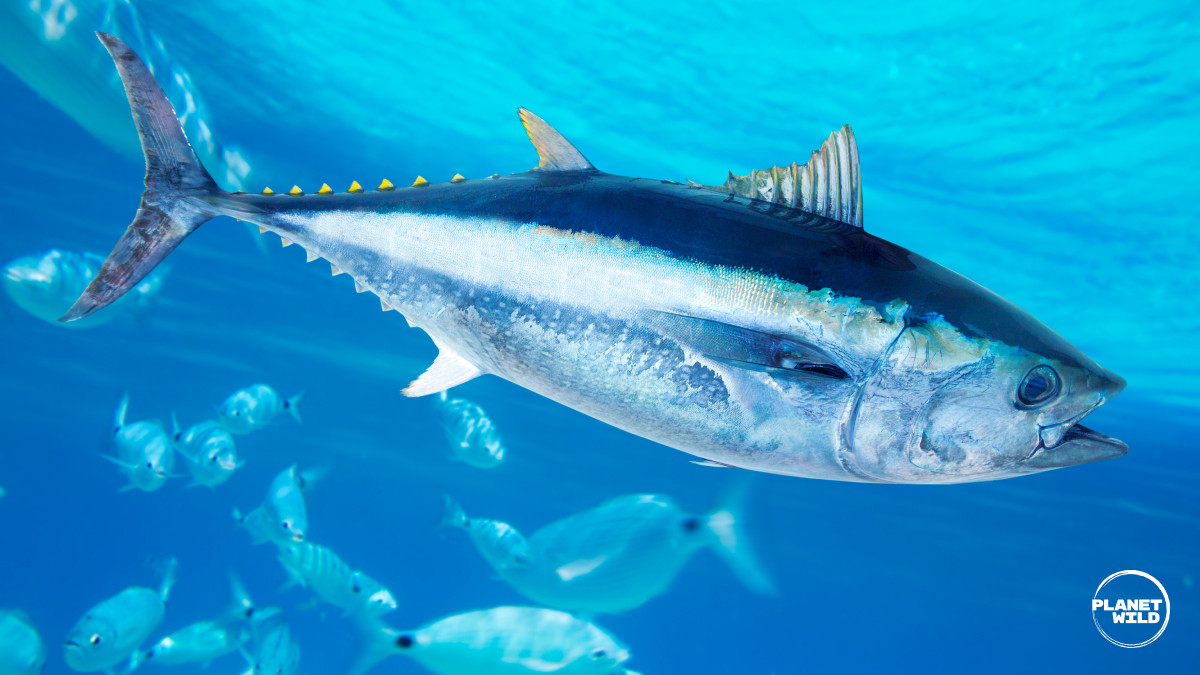 Bluefin tuna
Bluefin tuna
The demand for bluefin tuna contributes to the species’ endangered status.
5. How Do Coastal Developments Affect Marine Habitats?
The construction of resorts, hotels, and other tourist infrastructure along coastlines can damage critical habitats like mangroves, seagrass beds, coral reefs, and nesting sites for sea turtles. This prevents wildlife from accessing the shore and makes coastal regions more vulnerable to flooding and other natural disasters. While erosion is natural, construction accelerates it, disrupting natural processes like sand dune formation. Responsible coastal planning and eco-friendly construction practices are essential to mitigating these impacts.
5.1. How Has Tourism Affected the Mediterranean Monk Seal?
There are estimated to be only 700 Mediterranean Monk Seals left in the wild. This critically endangered species has been forced to breed in caves along the Cypriot coast due to mass tourism, among other factors. In the past, the seal used open beaches to raise their pups, but tourism has driven them away from these beaches. However, not all of these caves are protected and monitored, and some have been destroyed for further development. Conservation efforts are crucial to protect this rare species.
6. What Are the Effects of Increased Boat Traffic in Coastal Areas?
Excess boat traffic from sightseeing tours, transport, and other recreational activities can lead to accidental oil spills, collisions with marine mammals, and disturbance of the sea floor. Unregulated recreational boating is also a significant cause of the introduction and spread of marine invasive species. Areas with a lot of boat traffic will also chase important keystone species further away from the shore, upsetting the ecosystem. Responsible boating practices, such as avoiding sensitive habitats and using designated moorings, can minimize these impacts.
Mass tourism disrupts the migration patterns of dolphins and whales.
6.1. How Does Anchoring Impact Seagrass Meadows?
Repetitive anchor drops can scar the ocean floor, moving and uprooting important seagrass. Seagrass creates a safe, leafy habitat for many species, protecting juveniles and smaller invertebrates from harm. They also combat climate change by absorbing and storing huge amounts of carbon in their foliage. When leisure boats drop anchor into this environment, it can rip up and damage this safe haven. Using designated mooring buoys and avoiding anchoring in seagrass beds is crucial to protecting these valuable ecosystems.
7. What Is the Problem with Noise Pollution from Tourism?
Another significant problem with unregulated boat traffic is noise pollution. Hundreds of boats heading out to tour the coastline and chase whales create a huge amount of noise underwater. These noises are very disruptive to marine life, especially whales and dolphins that rely on sound for communication and navigation. Reducing boat speed and using quieter engine technologies can help mitigate noise pollution.
7.1. How Does Noise Pollution Affect Dolphins?
Many coastal tourist hotspots offer dolphin and whale spotting among the various activities on offer, but the sheer number of boats circling these intelligent creatures impacts their ability to communicate. Dolphins use various unique sounds and echolocation to communicate and connect. Unregulated dolphin watching makes it hard for the pods to hear each other underwater, pushing them further away from the shore. This is detrimental as they historically raise their young closer to the shore and that’s also where they find the best food. Responsible wildlife viewing practices, such as maintaining a safe distance and limiting the number of boats, are vital to protecting these animals.
8. How Can We Look After the Ocean While on Vacation in Vietnam?
Enjoying a vacation and caring for the ocean are not mutually exclusive. Here are some actionable steps you can take to make your travels more sustainable and responsible:
8.1. Research Responsible Travel Options
Before your trip, take the time to learn more about the coastal habitats you’re visiting. Find out if there are limitations, fees, or concerns about tourist numbers. For example, during the COVID-19 pandemic, Thailand’s beaches recovered when tourism stopped, prompting the country to limit visitor numbers and implement a sustainability tax. According to TripAdvisor’s Sustainable Tourism Guide, researching and choosing ethical travel options can significantly reduce your impact.
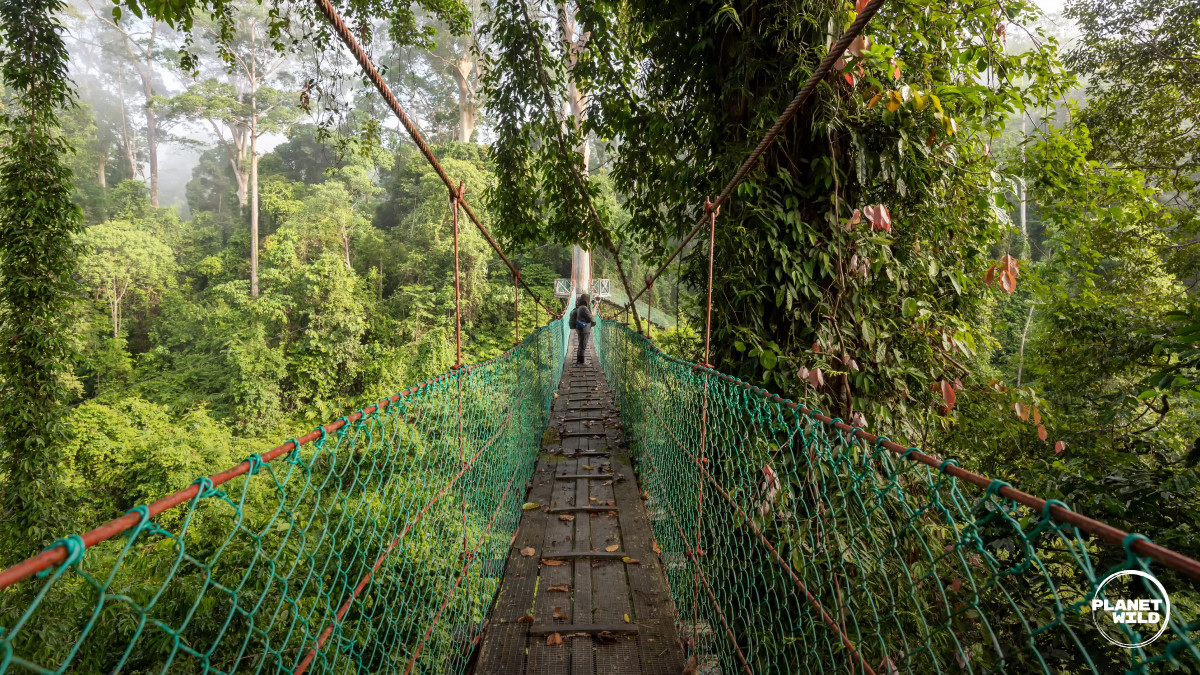 Woman enjoying a rainforest
Woman enjoying a rainforest
Ethical tourism is more important than ever, highlighting the need for eco-conscious choices.
8.2. Reduce Your Environmental Footprint
Minimize your impact by disposing of trash correctly and being mindful of your water usage. If you plan to enjoy seafood, ensure your choices aren’t endangered. Neglect is one of the biggest ways tourists can harm ocean ecosystems, so being conscious of your actions can significantly protect coastal tourist spots.
8.3. Respect Marine Life and Habitats
Even if tour operators encourage touching or disturbing ocean life, it’s best to avoid it. Don’t kick or walk on coral when snorkeling or diving, and keep a safe distance from turtles, whales, dolphins, and other marine life. If you take a leisure cruise, anchor away from sensitive habitats or use existing moorings rather than anchoring within a seagrass bed.
8.4. Embrace Local Culture and Customs
Respect for local culture, customs, and community is vital for responsible travel. Learn a few local phrases, avoid tourist traps, and travel in the off-season to lessen your footprint on popular tourist hotspots. Engaging with the local community not only enriches your travel experience but also supports sustainable tourism practices.
9. What Services Does SIXT.VN Offer to Promote Sustainable Tourism in Vietnam?
SIXT.VN is dedicated to providing services that promote sustainable tourism in Vietnam. We understand the importance of protecting the environment while offering convenient and enjoyable travel experiences. Here’s how SIXT.VN can help you make a positive impact:
- Eco-Friendly Transportation: SIXT.VN offers hybrid and electric vehicle rental options, reducing carbon emissions and promoting cleaner air in urban and coastal areas. By choosing these vehicles, you contribute to minimizing the environmental impact of your travel.
- Sustainable Accommodation Partnerships: We partner with eco-lodges and hotels committed to sustainable practices, ensuring your stay supports environmentally responsible businesses. These accommodations often implement measures such as energy conservation, waste reduction, and support for local communities.
- Responsible Tour Options: SIXT.VN provides access to eco-tours and activities that prioritize environmental preservation and cultural respect. These tours are designed to minimize impact on natural habitats and support local economies.
- Carbon Offset Programs: We offer carbon offset programs that allow you to compensate for the carbon emissions associated with your travel. By participating in these programs, you can contribute to projects that reduce greenhouse gas emissions and promote environmental conservation.
- Local Community Support: SIXT.VN actively supports local communities through partnerships and initiatives that promote economic development and cultural preservation. By choosing our services, you contribute to the well-being of the communities you visit.
10. Why Choose SIXT.VN for Your Sustainable Trip to Vietnam?
When planning your trip to Vietnam, consider the convenience, reliability, and sustainability offered by SIXT.VN. Here’s why SIXT.VN stands out as the ideal choice:
- Convenient Airport Transfers: Start your trip stress-free with our reliable airport transfer services. Our professional drivers ensure you reach your accommodation comfortably and on time, avoiding the need for less eco-friendly transportation options.
- Wide Range of Accommodation Options: Choose from a variety of hotels and eco-lodges that align with your budget and sustainability goals. SIXT.VN offers a curated selection of accommodations committed to responsible tourism practices.
- Easy Booking and Customer Support: Our user-friendly platform makes booking your services quick and easy. If you have any questions or need assistance, our dedicated customer support team is available to help you plan your sustainable adventure.
- Trusted and Reliable Service: SIXT.VN is committed to providing high-quality, dependable services that you can trust. We ensure that all our partners adhere to strict standards of sustainability and professionalism.
Choosing SIXT.VN for your travel needs means supporting a company that values environmental stewardship and community well-being. Let us help you create unforgettable memories while making a positive impact on Vietnam’s stunning coastal areas.
Contact SIXT.VN today to book your sustainable travel services:
- Address: 260 Cau Giay, Hanoi, Vietnam
- Hotline/Whatsapp: +84 986 244 358
- Website: SIXT.VN
FAQ: Tourism and Coastal Area Destruction
- Q1: What is mass tourism and why is it harmful?
Mass tourism refers to the influx of large numbers of tourists to popular destinations, straining local resources and ecosystems. - Q2: How does tourism contribute to coral reef destruction?
Tourists can physically damage coral reefs by diving and snorkeling, while sunscreen chemicals contribute to coral bleaching. - Q3: What role does plastic waste play in marine pollution from tourism?
Tourists often improperly dispose of plastic waste, increasing marine pollution and harming marine life. - Q4: How does overfishing relate to tourism?
Tourist demand for seafood can lead to overfishing, depleting fish populations and disrupting marine ecosystems. - Q5: How do coastal developments impact marine habitats?
Construction of tourist infrastructure can destroy mangroves, seagrass beds, and nesting sites for sea turtles. - Q6: What are the effects of boat traffic on marine life?
Boat traffic can cause oil spills, collisions with marine mammals, and noise pollution that disrupts communication and navigation. - Q7: How can noise pollution from tourism affect dolphins and whales?
Noise pollution interferes with the ability of dolphins and whales to communicate and find food, pushing them away from the shore. - Q8: What are some ways tourists can travel more sustainably?
Tourists can research ethical travel options, reduce waste, respect marine life, and support local communities. - Q9: What sustainable tourism services does SIXT.VN offer?
SIXT.VN offers eco-friendly transportation, partnerships with sustainable accommodations, responsible tour options, and carbon offset programs. - Q10: Why should I choose SIXT.VN for my sustainable trip to Vietnam?
SIXT.VN provides convenient, reliable, and sustainable services, including airport transfers, accommodation options, and local community support.



